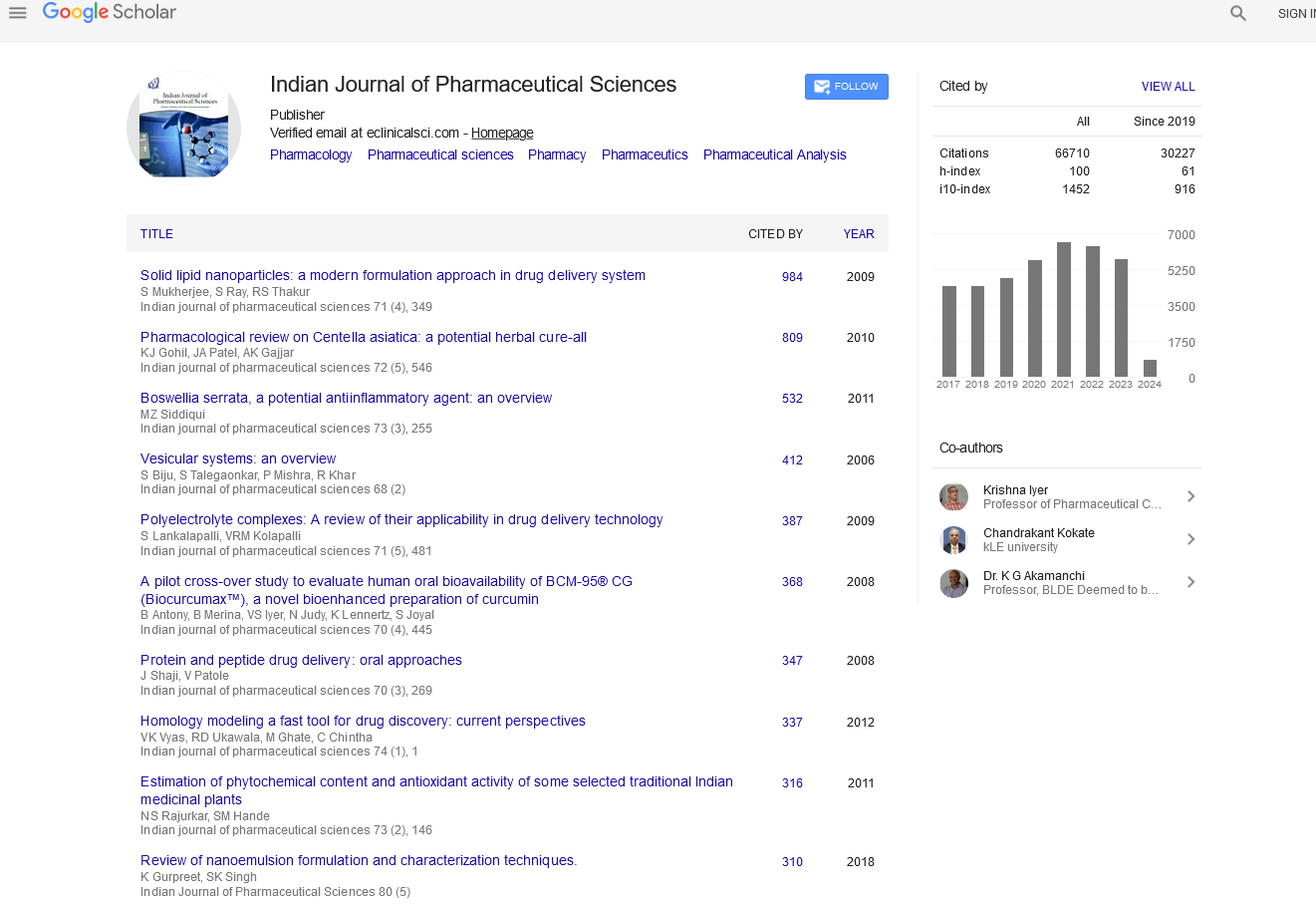Abstract
Design and in vitro characterization of buccoadhesive drug delivery system of insulin
Department of Pharmaceutics, Faculty of Pharmacy, Jamia Hamdard, Hamdard University, India
Correspondence Address:
F J Ahmad, Department of Pharmaceutics, Faculty of Pharmacy, Jamia Hamdard, Hamdard University, India, E-mail: farhanja_2000@yahoo.com
A buccoadhesive drug delivery system of Insulin was prepared by solvent casting technique and characterized in vitro by surface pH, bioadhesive strength, drug release and skin permeation studies. Sodium carboxymethylcellulose-DVP was chosen as the controlled release matrix polymer. The optimized formulation J 4 contained Sodium carboxy methyl cellulose-DVP 2% (w/v), insulin (50 IU/film), propylene glycol (0.25 ml) and Isopropyl alcohol: water (1:4) as solvent system. Bioadhesive strength of the prepared patches was measured on a modified physical balance using bovine cheek pouch as the model membrane. In vitro release studies were carried out at 37 ± 2° using phosphate buffer pH 6.6, in a modified dissolution apparatus fabricated for the purpose. Cumulative amount of drug released from the optimized formulation J 4 was 91.64% in 6 hours. In vitro permeation studies were carried out on J 4 at 37 ± 2° using Franz diffusion cell. Cumulative amount of drug permeated from J 4 was 6.63% in 6 hours. In order to enhance the permeation of protein drug, different permeation enhancers were evaluated. The results suggested that sodium deoxycholate 5% (w/v) was the best permeation enhancer among those evaluated. It enhanced the permeation of insulin from 6.63% to 10.38% over a period of 6 hours. The optimized patches were also satisfactory in terms of surface pH and bioadhesive strength. It can also be easily concluded that the system is a success as compared to the conventional formulations with respect to invasiveness, requirement of trained persons for administration and most importantly, the first pass metabolism.





